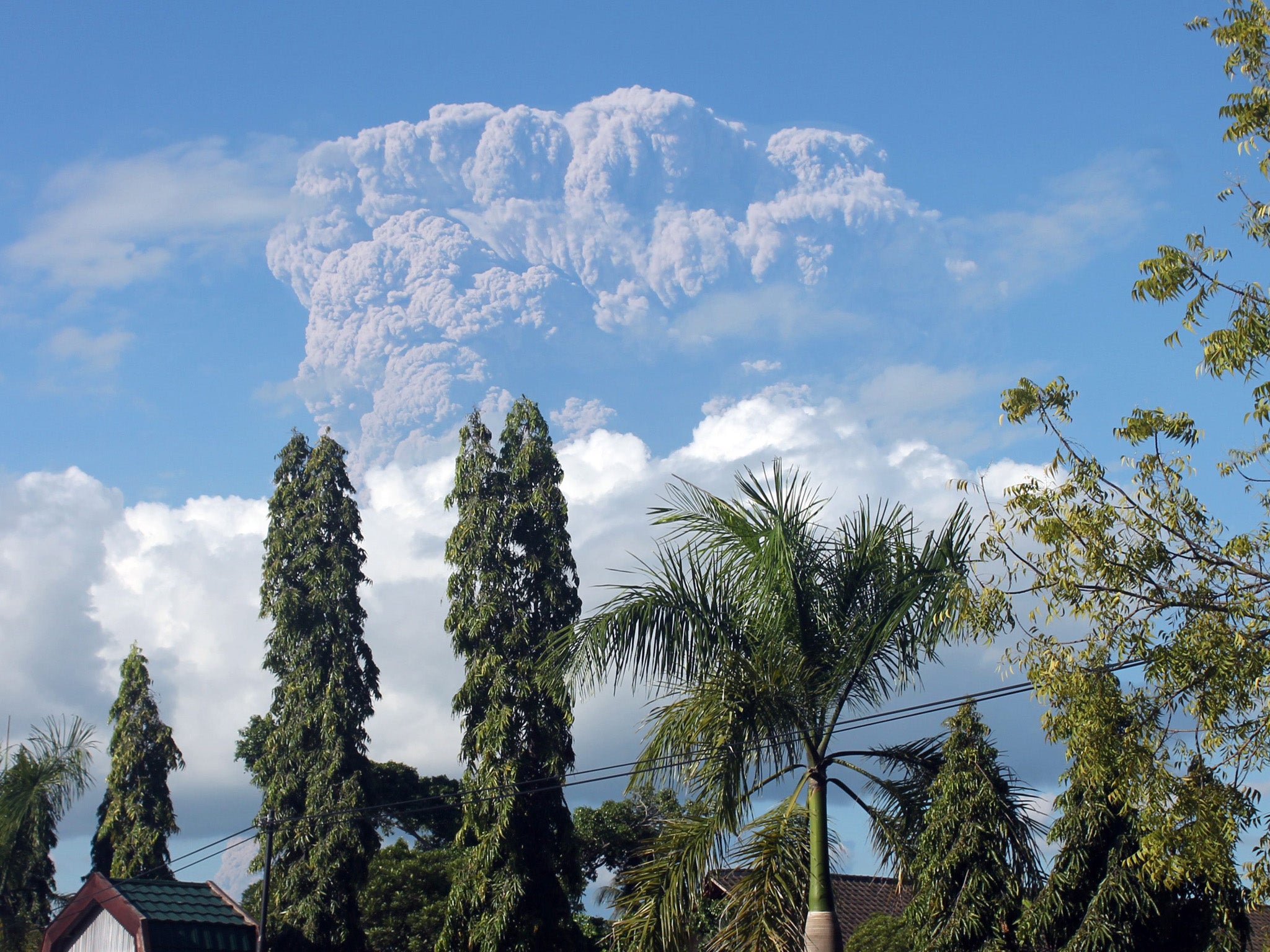Massive Indonesian volcano eruption grounds flights
Australian airports and flights to and from country particularly affected as ash cloud tracks south east

Your support helps us to tell the story
From reproductive rights to climate change to Big Tech, The Independent is on the ground when the story is developing. Whether it's investigating the financials of Elon Musk's pro-Trump PAC or producing our latest documentary, 'The A Word', which shines a light on the American women fighting for reproductive rights, we know how important it is to parse out the facts from the messaging.
At such a critical moment in US history, we need reporters on the ground. Your donation allows us to keep sending journalists to speak to both sides of the story.
The Independent is trusted by Americans across the entire political spectrum. And unlike many other quality news outlets, we choose not to lock Americans out of our reporting and analysis with paywalls. We believe quality journalism should be available to everyone, paid for by those who can afford it.
Your support makes all the difference.A huge volcanic eruption in Indonesia has covered the region in a vast cloud of ash, grounding flights in Australia and south east Asia.
Sangeang Api, a volcano off the Indonesian island of Sumbawa, which lies in one of the most active areas of the Pacific ‘ring of fire’, has erupted at least three times since Friday.
Dramatic images show smoke, ash and debris shooting into the sky, while a flying saucer shaped current of gas wraps around the plumes.
The ash cloud from the first eruption is around 20,000 and 50,000 feet high and around 15 km wide, according to reports. It is moving south-easterly over Australia. A second, now over Darwin is sitting at around 45,000 feet, while a third is over Bali.
"Depending on wind and other weather conditions, the ash has the potential to affect flights to and from other airports, including Brisbane, during coming days. This is currently being fully assessed," Australian deputy prime minister Warren Truss said.
"It is spreading east and it may dissipate, so it is not clear how far east it will get," Emile Jansons, Volcanic Ash Advisory Centre manager at the Bureau of Meteorology in Darwin, told the Australian Associated Press. "It is not yet clear if it will affect the eastern seaboard."
Join our commenting forum
Join thought-provoking conversations, follow other Independent readers and see their replies
Comments